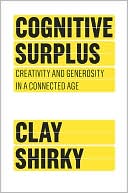Category Books
- Fiction Books & Literature
- Graphic Novels
- Horror
- Mystery & Crime
- Poetry
- Romance Books
- Science Fiction & Fantasy
- Thrillers
- Westerns
- Ages 0-2
- Ages 3-5
- Ages 6-8
- Ages 9-12
- Teens
- Children's Books
- African Americans
- Antiques & Collectibles
- Art, Architecture & Photography
- Bibles & Bible Studies
- Biography
- Business Books
- Christianity
- Computer Books & Technology Books
- Cookbooks, Food & Wine
- Crafts & Hobbies Books
- Education & Teaching
- Engineering
- Entertainment
- Foreign Languages
- Game Books
- Gay & Lesbian
- Health Books, Diet & Fitness Books
- History
- Home & Garden
- Humor Books
- Judaism & Judaica
- Law
- Medical Books
- New Age & Spirituality
- Nonfiction
- Parenting & Family
- Pets
- Philosophy
- Political Books & Current Events Books
- Psychology & Psychotherapy
- Reference
- Religion Books
- Science & Nature
- Self Improvement
- Sex & Relationships
- Social Sciences
- Sports & Adventure
- Study Guides & Test Prep
- Travel
- True Crime
- Weddings
- Women's Studies
Cognitive Surplus: Creativity and Generosity in a Connected Age »

Authors: Clay Shirky
ISBN-13: 9781594202537, ISBN-10: 1594202532
Format: Hardcover
Publisher: Penguin Group (USA) Incorporated
Date Published: June 2010
Edition: (Non-applicable)
Author Biography: Clay Shirky
Clay Shirky teaches at the Interactive Telecommunications Program at New York University, where he researches the interrelated effects of our social and technological networks. He has consulted with a variety of groups working on network design, including Nokia, the BBC, Newscorp, Microsoft, BP, Global Business Network, the Library of Congress, the U.S. Navy, the Libyan government, and Lego(r). His writings have appeared in The New York Times, The Wall Street Journal, The Times (of London), Harvard Business Review, Business 2.0, and Wired.
Book Synopsis
The author of the breakout hit Here Comes Everybody reveals how new technology is changing us from consumers to collaborators, unleashing a torrent of creative production that will transform our world.
For decades, technology encouraged people to squander their time and intellect as passive consumers. Today, tech has finally caught up with human potential. In Cognitive Surplus, Internet guru Clay Shirky forecasts the thrilling changes we will all enjoy as new digital technology puts our untapped resources of talent and goodwill to use at last.
Since we Americans were suburbanized and educated by the postwar boom, we've had a surfeit of intellect, energy, and time-what Shirky calls a cognitive surplus. But this abundance had little impact on the common good because television consumed the lion's share of it-and we consume TV passively, in isolation from one another. Now, for the first time, people are embracing new media that allow us to pool our efforts at vanishingly low cost. The results of this aggregated effort range from mind expanding-reference tools like Wikipedia-to lifesaving-such as Ushahidi.com, which has allowed Kenyans to sidestep government censorship and report on acts of violence in real time.
Shirky argues persuasively that this cognitive surplus-rather than being some strange new departure from normal behavior-actually returns our society to forms of collaboration that were natural to us up through the early twentieth century. He also charts the vast effects that our cognitive surplus-aided by new technologies-will have on twenty-first-century society, and how we can best exploit those effects. Shirky envisions an era of lower creative quality on average but greater innovation, an increase in transparency in all areas of society, and a dramatic rise in productivity that will transform our civilization.
The potential impact of cognitive surplus is enormous. As Shirky points out, Wikipedia was built out of roughly 1 percent of the man-hours that Americans spend watching TV every year. Wikipedia and other current products of cognitive surplus are only the iceberg's tip. Shirky shows how society and our daily lives will be improved dramatically as we learn to exploit our goodwill and free time like never before.
The Barnes & Noble Review
It's easy to find quibbles with an argument as audacious and thought-provoking as that put forward in Cognitive Surplus. The fact is, Shirky has written an important book about an interesting moment in human history. We have arranged our modern lives to maximize free time. Now, thanks to the virtual infrastructure of the internet, we are able to collaborate and interact as never before. The question is what these collaborations will create. A surplus, after all, is easy to squander.
Table of Contents
1 Gin, Television, and Cognitive Surplus 1
2 Means 31
3 Motive 65
4 Opportunity 97
5 Culture 131
6 Personal, Communal, Public, Civic 161
7 Looking for the Mouse 183
Acknowledgments 215
Notes 217
Index 231
Subjects
 WWW & Internet
WWW & Internet  Internet & World Wide Web - General & Miscellaneous
Internet & World Wide Web - General & MiscellaneousComputer Books & Technology Books
 WWW & Internet
WWW & Internet  Life Online
Life OnlineEngineering
 Social & Cultural Aspects of Technology
Social & Cultural Aspects of Technology  Social Aspects of Technology
Social Aspects of TechnologyEntertainment
 Media
Media  Communications - General & Miscellaneous
Communications - General & MiscellaneousEntertainment
 Media
Media  Media - General & Miscellaneous
Media - General & MiscellaneousEntertainment
 Media
Media  Media - Theory & Philosophy
Media - Theory & PhilosophyNonfiction
 Social Sciences
Social Sciences  Media & Communications
Media & CommunicationsNonfiction
 Social Sciences
Social Sciences  General & Miscellaneous
General & MiscellaneousScience & Nature
 Social Sciences
Social Sciences  Media & Communications
Media & CommunicationsScience & Nature
 Social Sciences
Social Sciences  General & Miscellaneous
General & MiscellaneousSocial Sciences
 Media & Communications
Media & Communications  Communications - General & Miscellaneous
Communications - General & MiscellaneousSocial Sciences
 Media & Communications
Media & Communications  Media - General & Miscellaneous
Media - General & MiscellaneousSocial Sciences
 Media & Communications
Media & Communications  Media - Theory & Philosophy
Media - Theory & PhilosophyNonfiction
 Entertainment
Entertainment  Media
Media
